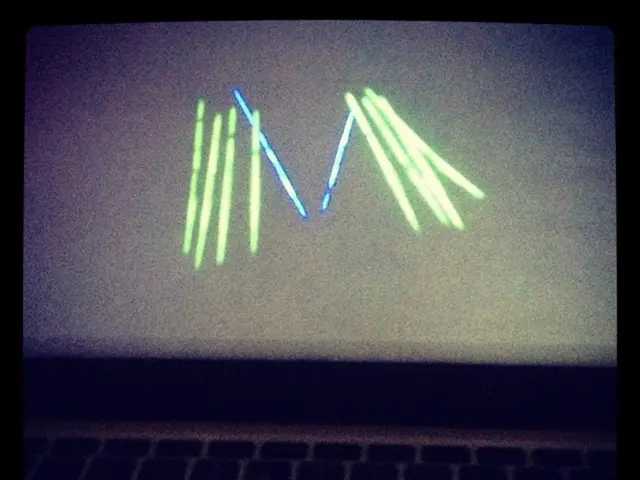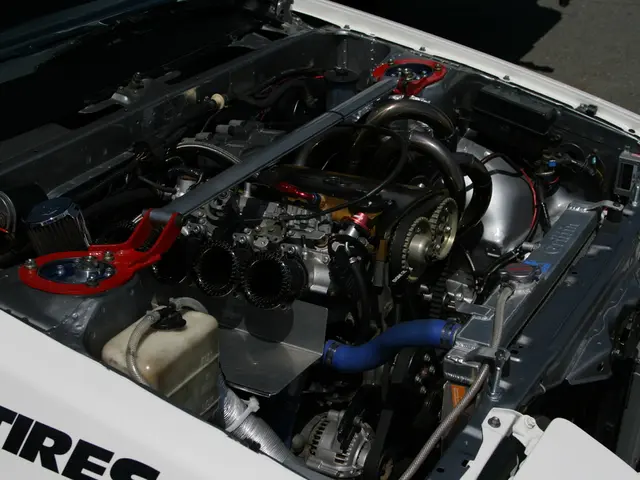BMW's Debrecen Plant Unveiled: Birthplace of the iX3 and New Class Models
The Debrecen site in Hungary is home to one of Hungary's largest solar parks, spanning 500,000 square meters and supplying approximately a quarter of its annual energy needs. This solar park is a key component of BMW's newest factory, Plant Debrecen, which is entirely dedicated to the Neue Klasse era and serves as a model for the brand's future production network.
BMW Plant Debrecen, with an initial investment of €1 billion that has since doubled to €2 billion, is a testament to BMW's commitment to innovation and sustainability. The plant's most notable addition is the on-site assembly of high-voltage batteries for electric models, making it the first BMW site to integrate high-voltage battery production.
The Debrecen plant is a hub of advanced technology. Every battery undergoes end-of-line checks that simulate real-world driving conditions before being shipped to the line. The switch from prismatic to 46 mm round cells simplifies design and increases packing efficiency. The plant also assembles sixth-generation (Gen6) round-cell packs for the iX3, which offers 20 percent higher energy density, 30 percent faster charging, and 40 percent lower drive losses compared to Gen5 packs.
Digitalization plays a significant role at Debrecen. BMW has taken digitalization further than ever before on the assembly floor, eliminating paper build sheets and using real-time screens and smartphones for updates. The plant also features a digital twin of the entire facility, developed with Nvidia's Omniverse platform, enabling AI-assisted quality checks throughout production.
Sustainability is at the heart of the Debrecen plant. Beyond energy, the site has implemented measures such as planting over 8,000 indoor plants, 6,500 shrubs, and 85 hectares of wildflower meadows, and integrating biodiversity measures. The plant runs entirely on electricity, with 137 electric air heaters and a 'Heat Grid' system that recycles waste energy. Notably, the Debrecen plant is the first BMW plant to operate on renewable electricity in normal operation.
The Debrecen plant's paint shop is another example of sustainable practices. It runs entirely on electricity, and the newest BMW plant features an impressive array of 137 electric air heaters.
The Debrecen press shop produces up to 10,000 parts per day, including about 80 major panels and crash-relevant structures for the iX3. In the body shop, more than 900 robots handle framing and welding with standardized processes, allowing staff to move easily between plants worldwide.
Currently, the Debrecen plant operates below full capacity, with the first production-ready vehicles being used for validation, marketing, dealer presentations, and PR purposes. At full capacity, Debrecen will be able to build up to 150,000 cars per year, with BMW stating it can build up to 30 iX3s per hour.
The iX3, the first Neue Klasse SUV, made its global debut in Munich and is being built at Plant Debrecen. Flexibility, resilience, and sustainability are the guiding principles of the Debrecen plant, setting a high standard for BMW's future global production network. The plant is expected to launch series production of the BMW iX3 in late October 2025.
The Debrecen plant generates about 220,000 tons of scrap per year but separates and returns it to suppliers in a closed-loop system. This commitment to sustainability ensures that the plant's operations have minimal impact on the environment.
In conclusion, BMW's Debrecen plant is a shining example of innovation, digitalization, and sustainability. It is a testament to BMW's commitment to the Neue Klasse era and serves as a blueprint for the brand’s future global production network.
Read also:
- Deep Hole Drilling Industry Forecasted to Expand to a Value of $1,108.2 Million by 2034 at a Compound Annual Growth Rate of 5.8%
- Embracing the Digital Supply Chain: The Internet of Things (IoT) Arrives
- Thousands of New Hires at Tesla for Speedy Semi-Truck Manufacturing in Nevada: Source Claims
- Guide on Integrating Digital Replicas in Manufacturing Processes








